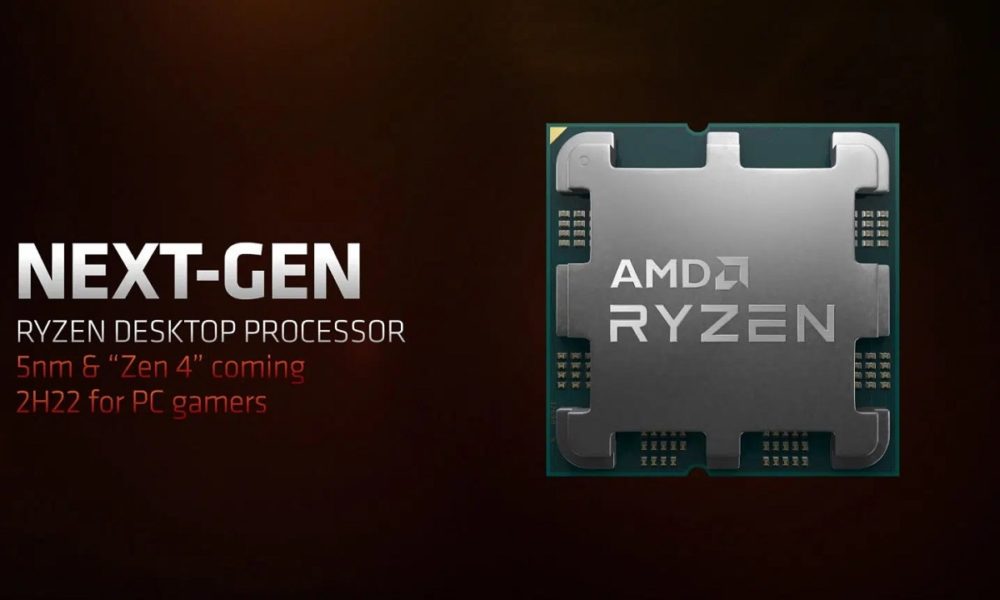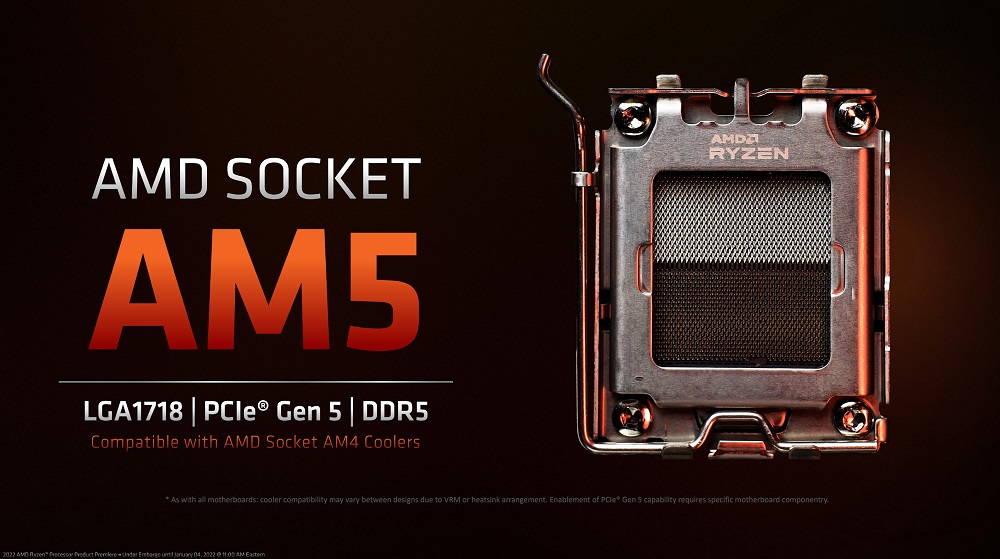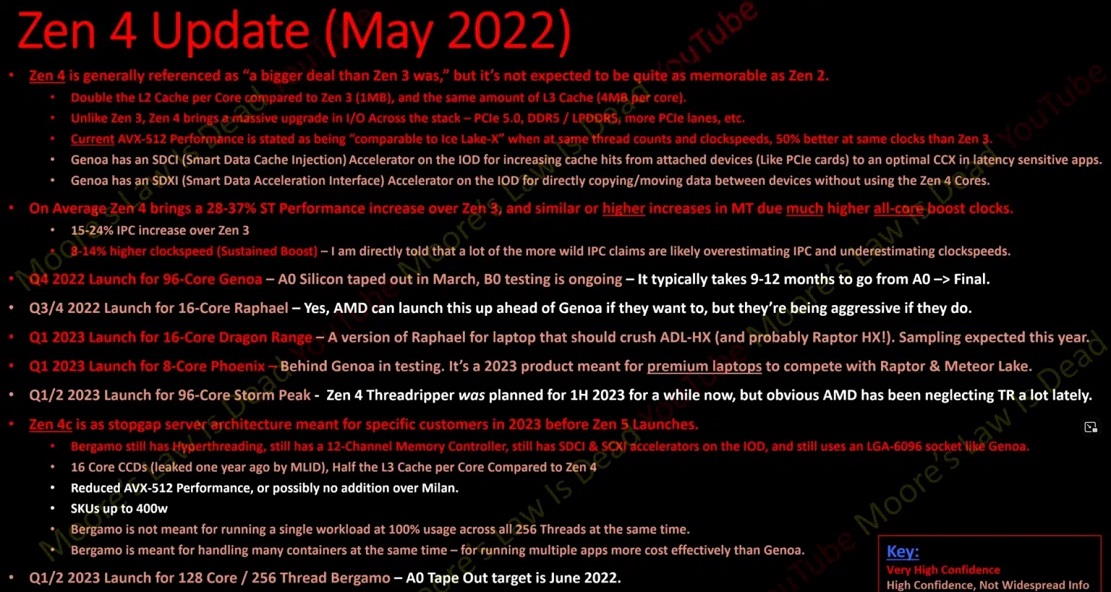
The launch of the Ryzen 7000 processors is still scheduled for end of this year, but the leaks do not stop. Thanks to these leaks, last January we were able to share with you a compilation with some of the most important keys to the base architecture of the Ryzen 7000, known as Zen 4, and now we have new information that highlights some very interesting aspects. of those new processors.
The Ryzen 7000 will maintain the MCM (multichip module) core design that we saw in the Ryzen 5000, but thanks to the changes that they will introduce at the microarchitecture level they will be able to offer a single-wire performance improvement of between 28% and 37%. Keep in mind that I am not talking about an increase in IPC, but about single-wire performance in general, which means that this figure includes both the increase in power derived from the IPC and the increase in working frequencies.
If we limit ourselves to the IPC, the Ryzen 7000 are expected to represent an improvement of between 15% and 24% compared to the Ryzen 5000. As for the working frequencies, everything seems to indicate that we will see a rise in between 8% and 14%. Both percentages apply to values of maximum sustained speed in turbo mode, which excludes possible short-term maximum peaks. Needless to say, these are impressive values, although perfectly believable, especially seeing what AMD achieved with Zen 3.
In multithreading, the Ryzen 7000 should offer a substantial performance improvement, although somewhat lower than the values we have seen in monothread because turbo mode should reduce the frequency by having a high number of busy cores and threads. You already know how this works, the turbo mode reaches its maximum frequency with one core and two threads active, and it reduces frequency as more cores are used.
Ryzen 7000 will use a next-generation platform
And it seems that this will unfortunately have a negative side, since according to the latest information, the Ryzen 7000 will only be compatible with DDR5 memory. If this is confirmed, to make the leap to this generation of processors we would have to change not only the motherboard, but also the RAM. In this sense, it must be remembered that Intel did not make that mistake with the Core Gen12, since these are compatible with DDR4 and DDR5.
This new generation of processors would also be compatible with the new standard PCIE Gen5will bring major changes to the floating point unit and also in the first and second level caches. In this sense, two profound changes must be highlighted: an increase in the bandwidth of the L1 cache, which could reach 64 GB/s, and an increase in the total L2 cache memory per core, which will rise from 512 KB of Zen 3 up to 1 MB with Zen 4.
The Ryzen 7000 will be manufactured in 5nm process from TSMC and will have a turbo mode of up to 5 GHz, which means that AMD will finally be able to remove a “thorn” that has been stuck for many years, a topic that we already had the opportunity to touch on at the time in this article. I remind you that we do not expect an increase in the maximum number of cores and threads in the Ryzen 7000, that is, that they should keep the maximum of 16 cores and 32 threads of the Ryzen 5000but since it is not confirmed we cannot take it for granted.
In the attached image you can find a summary of other important rumors focused on Zen 4can architecture focused on the professional sector, and also in the next generation APUs. Phoenix is the most interesting since, as we told you at the time, it could come with a very powerful integrated GPU. The YouTube channel Moore’s Law Is Dead has been the one who has compiled all this information.





